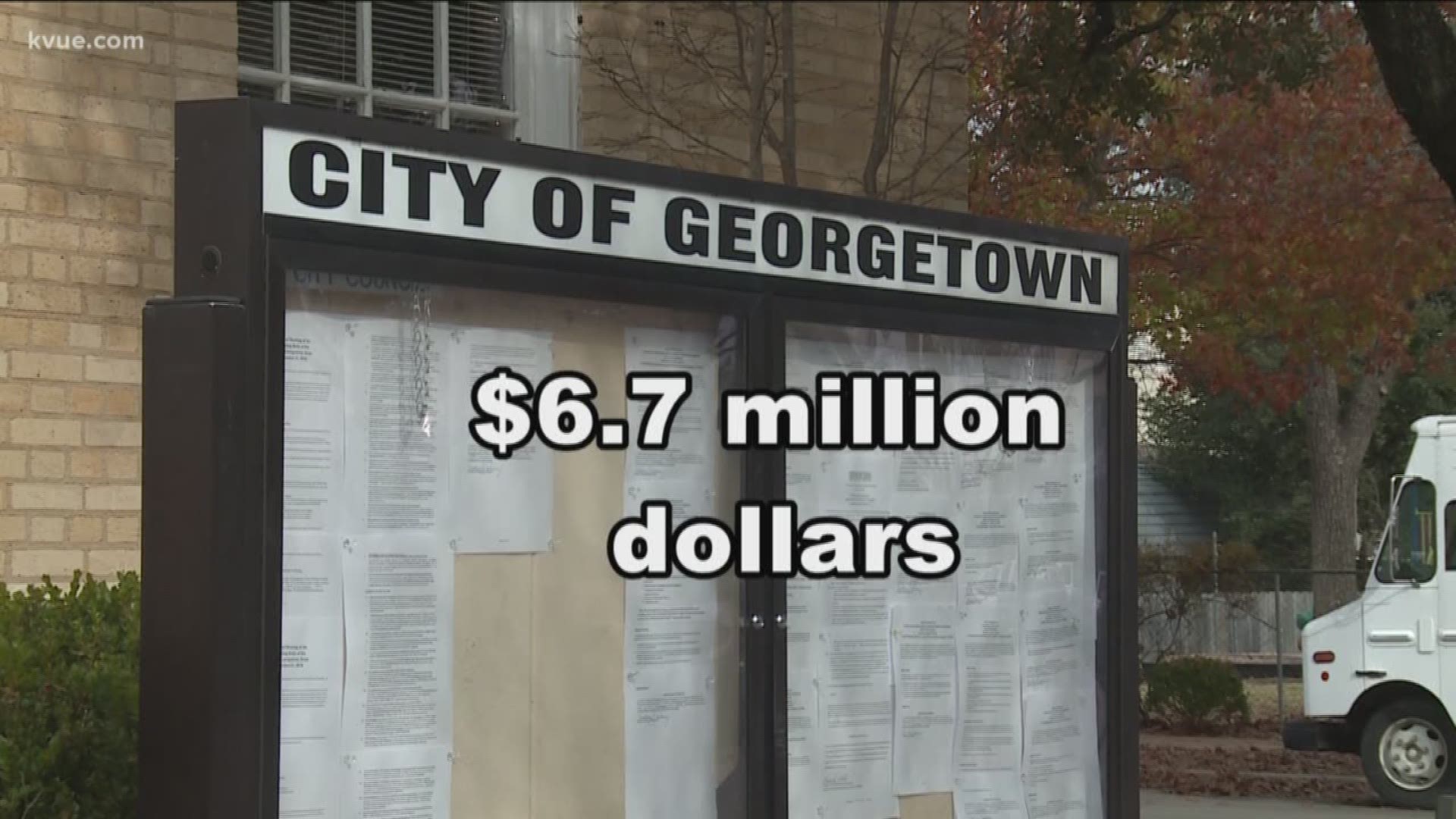GEORGETOWN, Texas — Wind and solar farms in West Texas are now powering up homes and businesses in Georgetown.
"We have enough generation from solar and from wind to cover the needs of the community," Jim Briggs, the assistant city manager and general manager of utilities for Georgetown, said.
To protect the city from a volatile market and fluctuating prices, city officials locked in a rate for more than 20 years through a contract.
"What we tried to do is take out the wild swings,” Briggs said.
He said they had to plan for population growth of the area and buy more energy than they need right now.
But, with a lingering natural gas contract that doesn't expire until 2021 and energy efficient appliances, the city has more power than it needs this year.
"Our use has not grown with what our projections indicated,” Briggs said. "What we've seen in the last three years is that customer growth has continued to be robust with the economic activity in [the] Central Texas region, but customer consumption growth is declining."
Now, they're paying for it.
"Part of that is because the prices were depressed,” Briggs said.
Usually, you can sell off that extra energy. But this year, prices were way down since weather predictions said it would be a hot one -- and it wasn't.
"In August and September, we ran into cooler than normal, wetter than normal conditions. And so, nobody was using electricity. Everybody geared up to have a lot of electricity available, and when that happens, the market forces prices down," Briggs said.
That means supply was high, and demand was low.
"It wasn't because of a form of energy, it wasn't because of gas, it wasn't because of solar or wind,” Briggs said.
"It also caused enough concern for us to say we've got to take action not to repeat that,” Briggs said.
The electric department is working to sell off that natural gas contract and trying to sublease pieces of their solar and wind contracts until the population growth dictates that they need it.
"It takes it off our obligation to have to come up with it to pay for it,” Briggs said. "2018 exposed a financial risk that we need to manage and part of that management is looking for somebody else to step in and help us on that front. But eventually, you're going to need that energy."
They're also cutting back on other expenses like halting current projects, enforcing a temporary hiring freeze and limiting expenditures.
"We're taking actions necessary for 2019 to get back on track,” Briggs said.
Georgetown customer base rates are going up in January. Briggs said that’s not related to this, but due to population growth the rate will go up almost $5 to help fund infrastructure to get power to new subdivisions.
RELATED:

